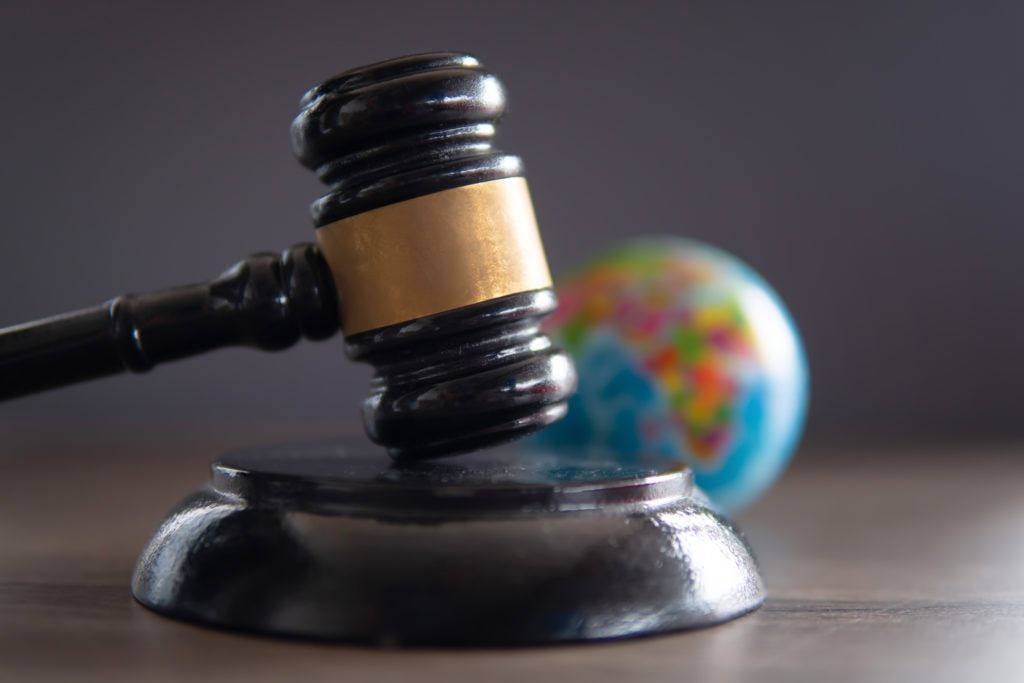What is Jurisdiction?


Jurisdiction, derived from the Latin words ‘juris’ (law) and ‘dicere’ (to speak), refers to the authority granted to courts to hear and make decisions on legal matters within a specified geographical area. This concept is fundamental to the legal system, ensuring that courts operate within their designated bounds of authority. Proceedings conducted without jurisdiction are considered a nullity, effectively treating them as if they never occurred.
This article explores the various aspects of jurisdiction in criminal law, including its prerequisites, the process of acquiring jurisdiction, and the implications of procedural errors.
Preconditions for Court Jurisdiction
For a court to have jurisdiction over a criminal matter, three preconditions must be met:
Charging Document
The presence of a charging document, either information or an indictment, is essential. This document lays out the formal accusations against the accused and forms the basis of the charges that the defendant must answer to. The Crown must prove the specific charges mentioned in the document. Any discrepancy between the charges and the evidence presented can provide a defence for the accused. For example, if the information charges the accused with possession of marijuana, the Crown must prove possession of marijuana. If it turns out the accused possessed cocaine instead, the Crown’s failure to prove the original charge means the accused cannot be convicted of marijuana possession.
Presence of the Accused
The physical presence of the accused in court is a crucial precondition. The accused can be compelled to attend court through a summons or other legal processes. If the documentation compelling attendance is flawed, the mere presence of the accused can remedy the defect. Voluntary attendance by the accused also grants the court jurisdiction. However, if the accused is not lawfully compelled to attend, the court loses jurisdiction over the person.
Court Action on the Charge
The court must take some action on the charge when the accused and the information are before it. If the court fails to act, the information may become a nullity. Section 485.1 of the Criminal Code states that jurisdiction over the offence is not lost due to the court’s failure to act at a specific time or to comply with provisions regarding adjournments or remands. This provision ensures that procedural delays do not invalidate the court’s jurisdiction.
Importance of Charging Documents
Validating Charges
The information or indictment must align with the evidence presented by the Crown. Any discrepancy between the charges and the evidence can lead to a defence for the accused. For instance, if the information charges the accused with a specific offence, such as possession of marijuana, the Crown must prove possession of marijuana, not any other substance like cocaine. Failure to align the charges with the evidence can result in the dismissal of the case.
Flexibility in Amendments
The Crown has the authority to amend the charges in the information to better reflect the facts of the case. This can be done at any time before the trial, provided it does not prejudice the accused’s ability to defend themselves. The amendment process ensures that technical errors in the initial charging document do not derail the judicial process, but it must be balanced against the rights of the defendant to a fair trial.
Jurisdiction and Attendance in Court Proceedings
Significance of Court Attendance
The court’s jurisdiction is contingent on the presence of the accused. If there is no information before the court, it lacks jurisdiction to proceed. For instance, if an accused person attends their first court appearance and finds no information charging them before the court, the court loses jurisdiction. It is crucial to verify court dates and ensure proper documentation to avoid jurisdictional issues.
Verifying Attendance
To prove attendance, especially when no information is present, the clerk of the court may endorse the summons with the date of the appearance. This endorsement serves as proof of attendance and helps maintain jurisdictional integrity. Ensuring attendance and proper documentation are critical steps in the judicial process.
Correcting Documentation Errors
Errors in the documentation compelling the accused’s attendance can be rectified by the court. Issuing a fresh process to enforce attendance or voluntary attendance by the accused can restore jurisdiction. The ability to correct clerical errors ensures that procedural technicalities do not impede the administration of justice.
Court Appearance Requirements
Personal Appearance
The requirement for the accused to personally appear in court depends on the nature of the offence. For summary offences, a lawyer or agent can appear on behalf of the accused. However, for hybrid offences, which are deemed indictable until the Crown elects how to proceed, personal appearance is mandatory. Amendments to the Criminal Code in July 2002 allow a lawyer or articling student to appear on behalf of the accused for any charge if a ‘designation’ is filed with the court. Despite this provision, personal appearance at the trial remains necessary.
Designations and Representation
The ‘designation’ process allows legal representatives to appear on behalf of the accused, reducing the need for personal court appearances for procedural matters. This provision streamlines court proceedings while ensuring the accused’s rights are protected. However, the accused must still attend the trial in person to ensure the court’s jurisdiction and the integrity of the trial process.
Rectifying Jurisdictional Issues
Addressing Documentation Flaws
Documentation flaws, such as errors in the summons or other legal processes compelling attendance, can be addressed by the court. The issuance of a new process or the voluntary attendance of the accused can correct these issues, ensuring that the court retains jurisdiction. This flexibility in correcting procedural errors helps maintain the continuity of legal proceedings.
Maintaining Jurisdiction
Maintaining jurisdiction requires ongoing adherence to procedural requirements. The court must ensure that all actions taken are within the bounds of its authority and that any procedural lapses do not invalidate its jurisdiction. Continuous monitoring and corrective measures are essential to uphold the integrity of the judicial process.
Importance of Legal Representation
Role of Defense Lawyers
Engaging a professional legal entity, such as Pyzer Criminal Lawyers, can help navigate the complexities of jurisdictional issues. Experienced defence lawyers ensure that all procedural requirements are met, safeguarding the rights of the accused. Legal representation provides a strategic advantage in addressing jurisdictional challenges and ensuring a fair trial.
Benefits of Early Engagement
Early engagement of a defence lawyer can mitigate jurisdictional issues before they arise. Legal counsel can ensure that all necessary documents are correctly filed, court dates are verified, and procedural requirements are met. This proactive approach reduces the risk of jurisdictional challenges and enhances the defence strategy.
Practical Implications of Jurisdictional Challenges
Impact on Legal Proceedings
Jurisdictional challenges can significantly impact legal proceedings. Issues such as flawed documentation, incorrect charges, or failure to attend court can delay trials, cause mistrials, or result in the dismissal of charges. Understanding the importance of jurisdiction and adhering to procedural requirements is crucial for the smooth operation of the judicial system.
Ensuring Fair Trials
Jurisdictional integrity ensures that trials are conducted fairly and justly. By addressing jurisdictional issues promptly and effectively, the legal system upholds the rights of the accused and maintains public confidence in the judicial process. Legal practitioners play a vital role in ensuring that jurisdictional challenges do not compromise the fairness of trials.
Conclusion
Jurisdiction is a fundamental concept in criminal law, defining the authority of courts to hear and decide cases. Understanding the preconditions for jurisdiction, the importance of charging documents, the requirements for court attendance, and the mechanisms for rectifying jurisdictional issues is essential for anyone involved in the legal system.
Engaging experienced legal representation can help navigate these complexities, ensuring that procedural requirements are met and the rights of the accused are protected. By maintaining jurisdictional integrity, the legal system can deliver fair and just outcomes, reinforcing public confidence in the administration of justice.

Jonathan Pyzer, B.A., L.L.B., is an experienced criminal defence lawyer and distinguished alumnus of McGill University and the University of Western Ontario. As the founder of Pyzer Criminal Lawyers, he brings over two decades of experience to his practice, having successfully represented hundreds of clients facing criminal charges throughout Toronto.





